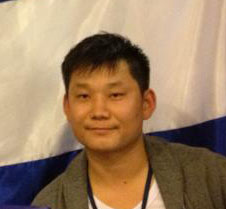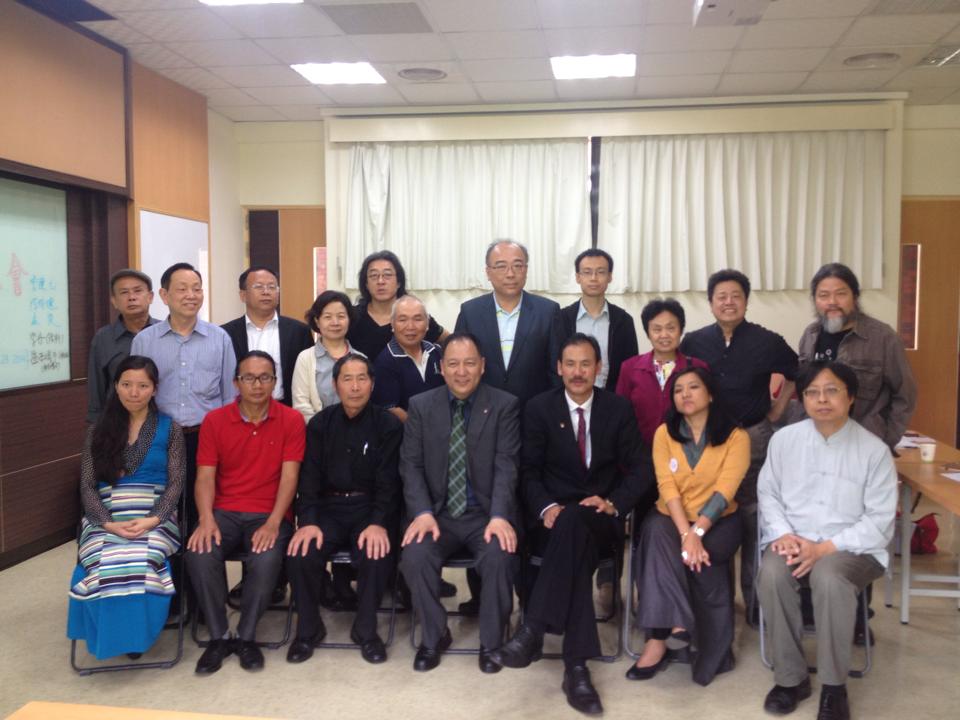A group of seven Tibetans from India represented Tibet at the 9th Inter-ethnic, Inter-faith Leadership Conference held in Taipei, Taiwan. The four-day meeting, which started on April 24, included over seventy participants, including democracy activists, human rights lawyers, writers, activists and policy makers, from Taiwan, Hong Kong, Tibet, Southern (Inner) Mongolia, Macau, Mainland China, Uyghur and representatives of the Christian Church Movement and Falung Gong*.
The participants came together to find a common ground to challenge the Chinese government and to be “united to build a viable Democratic opposition – Paths, Roles and Responsibility” against the Chinese government.
During the inaugural ceremony, a written message from His Holiness the Dalai Lama was read, “China needs human rights, democracy and the rule of law because these values are the foundation of a free and dynamic society. They are the source of true peace and stability. A democratic China is also in the interest of the international community in general and of China’s neighbours in particular. I will have no doubt either that an increasingly open, free and democratic China will be of benefit to the Tibetan people too.”
The Tibetan group represented Tibet as an occupied country and took the opportunity to talk about its current situation under the repressive policies of the Communist Party of China. The seven Tibetans were: Bawa Kalsang Gyaltsen and Dhardon Sharling, Tibetan Parliamentarians; Yeshi Tenzin, Chinese Section of the Department of Information and International Relations of Central Tibetan Administration, Dorjee Tseten, Asia Director of Students for a Free Tibet; Lobsang Tseten, Asia Coordinator of the International Tibet Network; Dukthen Kyi, editor of Contact Magazine, Lha and Dr Chok Tenzin Monlam, researcher and writer, who highlighted the grave situation in Tibet, including the self-immolations and the repercussions on the immolators and their families.
Through group activities, songs and dances, discussions over dinners and after-meeting-discussions, the groups connected and found many supporters and friends of Tibet. One such friend is Mr Dalaibaatar Dovchin, an ardent human rights activist from Southern Mongolia. According to Southern Mongolia Watch, about two weeks after the conference, Dalaibaatar and another Mongolian exile Mr Tulguur Norovrinchen were deported from Mongolia and have gone missing.
After the successful conclusion of the conference, which was organised by Initiatives for China/ Citizen Power for China and sponsored by the Taiwan Foundation for Democracy and the National Endowment for Democracy, four of the Tibetans attended the inauguration ceremony of the Tibetan-Chinese PEN Centre. The PEN Centre aims to build understanding between Tibetans and Chinese people through literary works.
*Falun Gong is a spiritual discipline which combines the practice of meditation and slow-moving exercises. The Chinese government views Falun Gong practice as a potential threat due to its growing popularity and size and initiated a nationwide crackdown and multifaceted propaganda campaign against the practice in 1999.






 Print
Print Email
Email